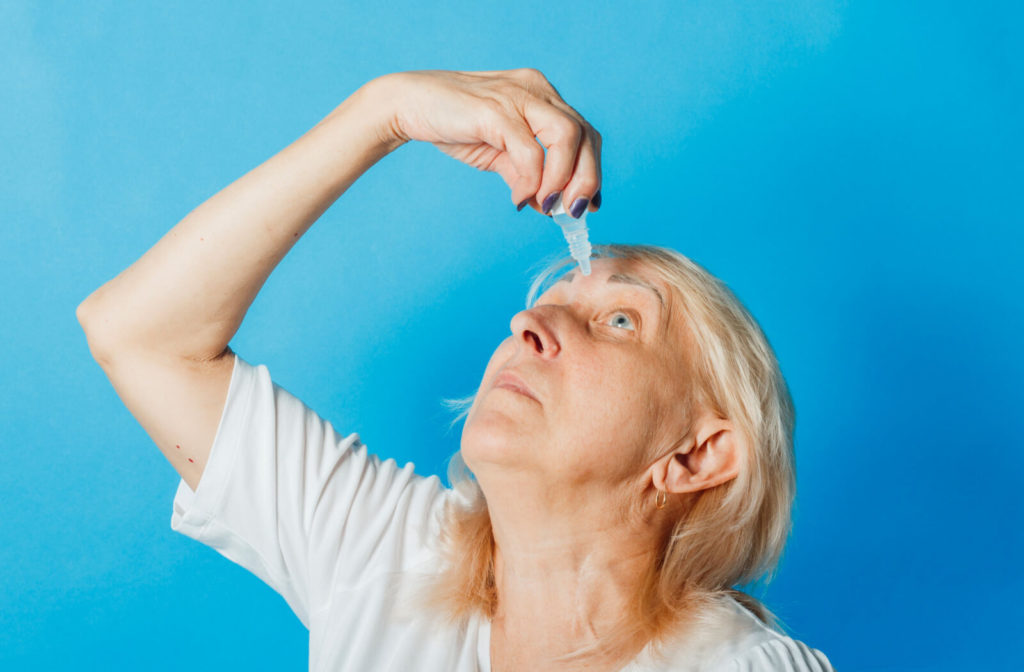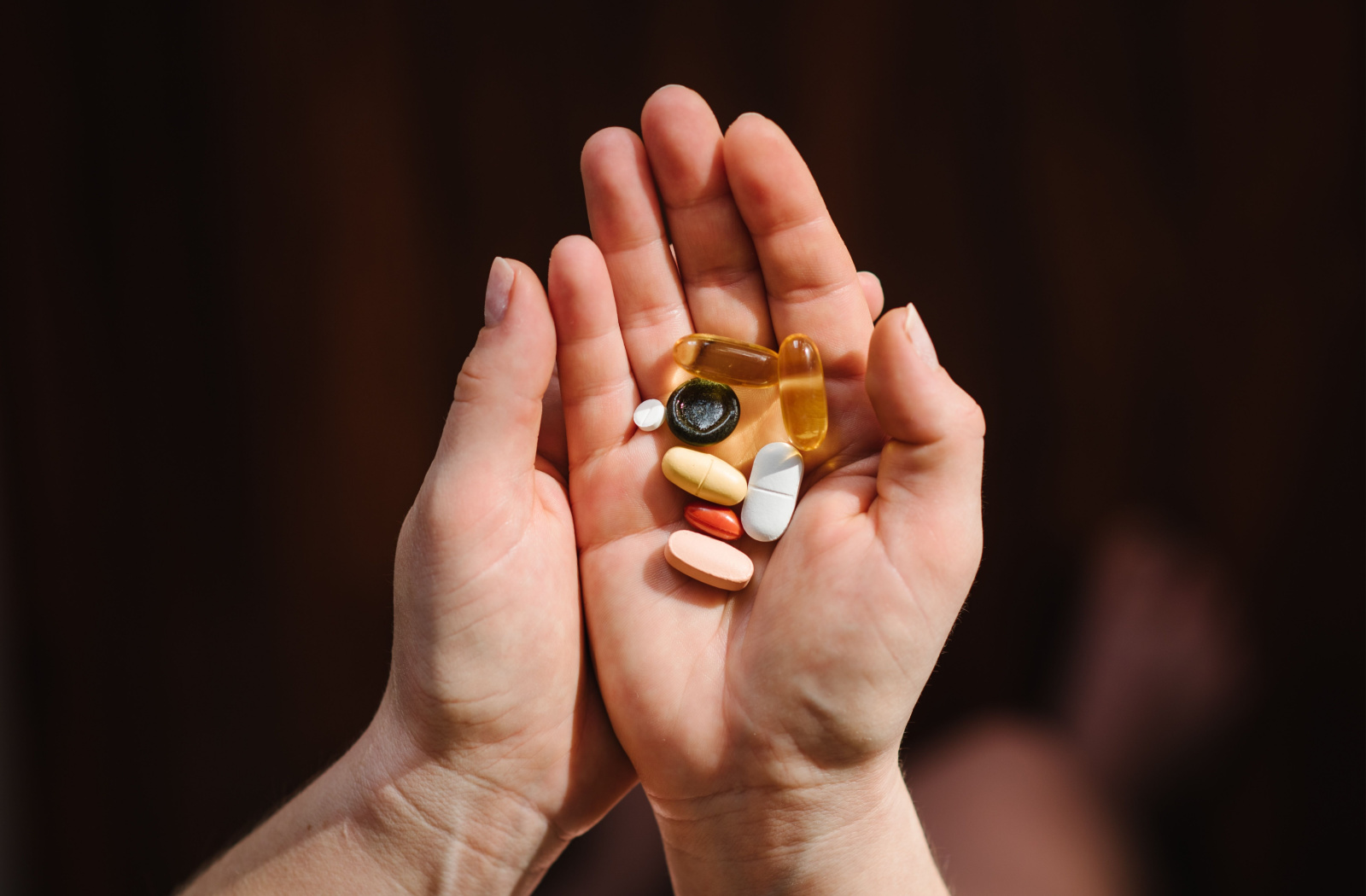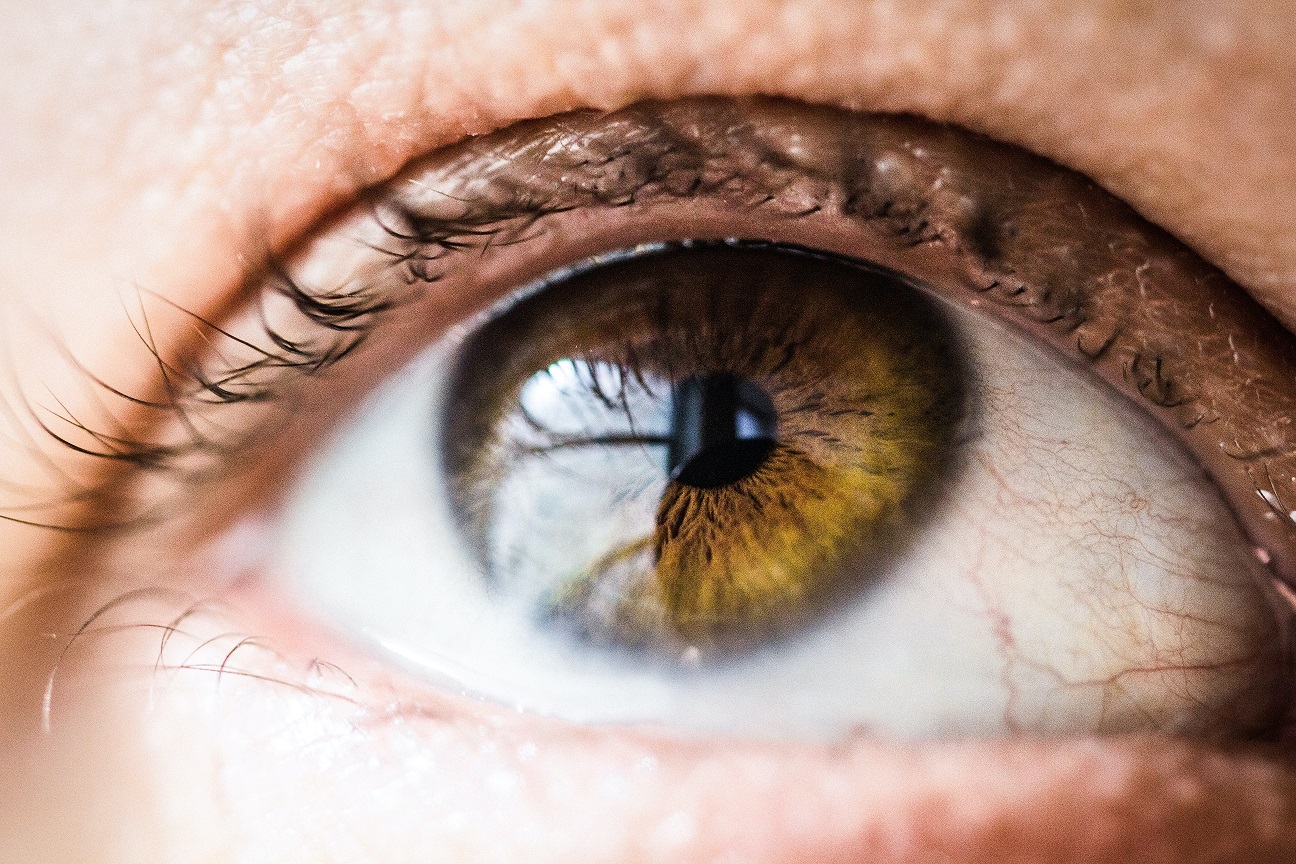If you experience bouts of blurry vision, it does not necessarily mean your prescription has changed. Having blurred vision may be a sign that you are experiencing dry eyes.
Dry eye disease is a very common eye condition that can cause uncomfortable symptoms, including blurriness. An estimated 25% of Canadians suffer from the condition, so if you are experiencing dry eye symptoms, you are not alone.
In addition to blurred vision, dry eye can cause symptoms such as:
- Redness
- Burning or irritated eyes
- Sensation of having something in your eye
- Sensitivity to light
If you are experiencing one or more of these symptoms in addition to intermittent blurred vision, there is a good chance that your blurred vision may be connected to dry eyes.
For mild cases, dry eye symptoms can be treated at home; however, if you are experiencing persistent symptoms, including blurred vision, it is a good idea to consult with your eye doctor to treat the underlying cause with in-office treatments.
How Dry Eyes Can Cause Blurriness
Dry eye occurs due to one of 2 reasons; either your eyes are not producing enough tears, or your tears are evaporating too quickly. The 2 types of dry eye are called aqueous-deficient dry eye and evaporative dry eye.
Both types of dry eye indicate an issue with your eye’s tear film, which plays a vital role in keeping your eyes lubricated and healthy. When you are not producing enough tears, the surface of your eye can quickly become dry and, in some cases, inflamed, which can contribute to distorted or blurred vision.
If left untreated, dry eye can cause damage to your cornea. The cornea is the clear, dome-shaped outer layer at the front of your eye. It is responsible for focusing light onto the retina at the back of your eye, which allows you to see. In severe and rare cases of dry eyes, the damage to your cornea may require surgical intervention.
Risk Factors for Dry Eye & Blurriness
As we discussed above, blurred vision is a common symptom of dry eye. However, there are certain factors that may increase your likelihood of experiencing blurred vision in conjunction with dry eyes. This may include things like wearing contact lenses or spending a lot of time at a computer.
Dry eyes can be caused by a wide variety of factors, including:
- Contact Lenses: Wearing contact lenses for an extended period of time can cause dry eyes, as can wearing contacts that do not fit properly. Experiencing dry eyes can also make it difficult to wear contact lenses.
- Computer Vision Syndrome: While focusing on a computer screen or smartphone, we blink less often, which can contribute to tear evaporation. Spending an extended period of time in front of a screen can also cause us to exert our eyes, which can cause eye strain and blurred vision.
- Age: As we get older, our eyes naturally produce fewer tears, which can lead to dry eye symptoms, including blurred vision.
- Environmental Factors: Exposure to certain environmental conditions, such as dry air, wind, and smoke, can contribute to dry eyes.
- Medical Conditions: Certain medical conditions, such as rheumatoid arthritis, diabetes, thyroid problems, and Sjogren’s syndrome, can cause dry eyes.
- Medications: Some medications, such as antihistamines, antidepressants, and blood pressure medication, can contribute to dry eyes.
- Hormonal Changes: Changes in your hormone levels, such as those that occur during pregnancy or menopause, can also cause dry eyes.

How to Treat Dry Eye & Blurriness
If you are experiencing blurred vision caused by dry eye, the first step to restoring your vision will be to treat the root cause. Understanding the underlying cause of dry eye can be an important step in effective treatment.
During a comprehensive dry eye assessment, your eye doctor can work with you to create an effective treatment plan for your specific dry eyes.
Common treatment options for dry eyes include:
- Preservative-Free (PF) Eye Drops: PF Eye drops or artificial tears can provide dry eyes with much-needed lubrication. Check out our previous blog on the best PF eye drops for dry eyes as recommended by your eye doctor. For more persistent cases of dry eyes, you may require a prescription eye drop to manage symptoms. Most commonly, anti-inflammatory eye drops or immunomodulators will be prescribed. One thing to note is that eye drops can often cause blurred vision when first applied; however, your vision should go back to normal shortly after application.
- Eyelid Heating & Compression: If you are experiencing dry eyes due to blocked oil glands, heat and compression can be a good treatment option. Depending on the severity of your dry eye, this type of treatment may range from a warm compress (specifically, a Bruder mask) at home, a LipiFlow treatment or Radiofrequency treatment at your doctor’s office. Heat treatment should help release oils back into your tear layer, which can cause your vision to become temporarily blurred.
- Lifestyle Changes: Making changes to your lifestyle can also help to manage your dry eye symptoms. This includes things like taking regular breaks during screen time, adding a humidifier to your space, and introducing more omega-3 fatty acids into your diet.
When to See an Eye Doctor
It is important to keep in mind that dry eyes are far from the only cause of blurred vision. If you are experiencing persistent blurred vision, you should see your eye doctor for a full comprehensive eye exam.
If you are experiencing dry eye symptoms, including blurred vision, find an eye doctor using the MyDryEye clinic locator to get started with diagnosing and treating your dry eyes.










